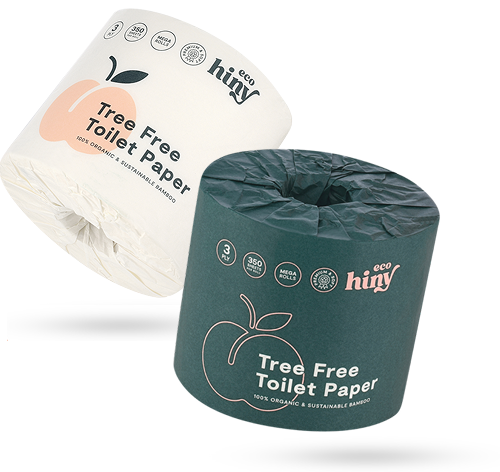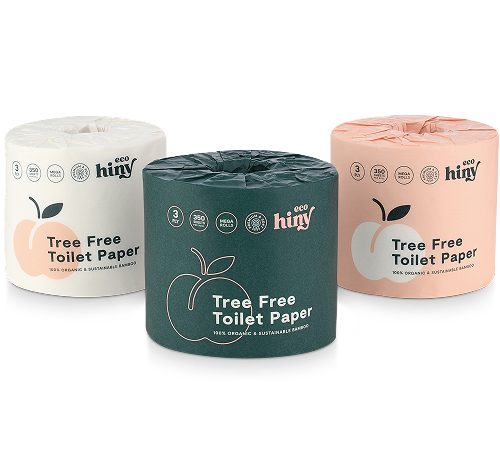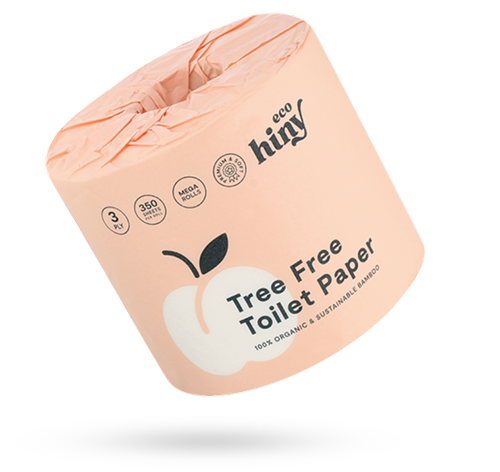Key Points
- Corporations are responsible for a significant share of global greenhouse emissions, but there's power in the consumer to influence corporate practices.
- Achieving meaningful change requires both corporate and individual action.
- Demand for eco-friendly products is on the rise and continues to grow, prompting innovative, sustainable practices.
- Bamboo is a renewable resource that makes ecoHiny's product a friend to the planet.
It's true that corporations are responsible for a significant share of global greenhouse emissions; however, the power of consumer choices should not be underestimated.
Individual choices can drive demand for sustainable products and services.
We believe that a balance between corporate accountability and personal responsibility is how we achieve meaningful change. Collective efforts on both large and small scales are needed to combat climate change and secure a sustainable future.
Let's examine the sources of corporate emissions and get an understanding of how consumer habits influence the marketplace.
What Are Corporate Emissions?
Corporate emissions refer to the greenhouse gases released by companies as a result of their operational activities.
These emissions are typically categorized into three scopes: Scope 1, Scope 2, and Scope 3, according to the Greenhouse Gas Protocol. (1)
Scope 1 emissions are direct emissions from company-owned or controlled sources. This includes emissions from fossil fuels from such actions as manufacturing and vehicle use.
Scope 2 emissions are indirect; they come from things like electricity or heating and cooling a space. Even if a facility does not directly produce CO2, electricity still contributes to its emissions.
Scope 3 emissions are also indirect and come from sources further down the chain. Things like transportation of goods, waste disposal, and employee commutes would fall into this category.
Recent updates to the Carbon Majors Report, which tracks the carbon emissions of the largest fossil fuel and cement-producing entities worldwide, note that over one-third of global CO2 emissions can be attributed to just 24 companies. The top 20 carbon producers include 16 businesses. (2)
According to the World Resources Institute, U.S. industries account for 30% of national greenhouse gas emissions, citing that since 1990, "industrial processes have been one of the fastest-growing global sources of greenhouse gas emissions, nearly tripling over the last three decades." (3)
These figures highlight the need for businesses to manage their emissions across all three scopes and implement strategies for reducing their carbon footprint.

Kind to you, Kind to the planet
Our mission is to save one billion trees by making the switch to ecoHiny.
Why Individual Choices Still Count
While it's true that corporations are responsible for a significant majority of greenhouse gas emissions, it's a misconception to think that individual choices don't matter in the fight against climate change!
The idea that "it's all big corporations, so my habits don't matter" can lead to complacency and inaction. However, individual consumer behavior can influence corporate practices and policies.
When consumers prioritize sustainable products and practices, companies often respond to that demand by shifting their strategies.
For example, there's a growing popularity for renewable energy, which has prompted many companies to invest in clean technologies and production practices. Plant-based diets and sustainable goods have also seen a significant bump in recent years. The increase in demand for eco-friendly products and services has prompted countless companies to innovate and create more sustainable practices.
These changes in the marketplace mean that consumers can use their purchasing power to make informed decisions that help protect the planet!
Each time a consumer opts for an eco-friendly option, they're contributing to a global movement to encourage large-scale change. Trust us; small actions add up and can lead to some substantial sustainable impacts.
Clean Habits That Reduce Your Footprint
How can you contribute in your own home? Adjustments to everyday habits truly can make a difference.
Consider some simple daily choices with real impact, like:
- Reducing single-use plastics
- Joining the office carpool
- Cutting down meat consumption
- Reuse and repurpose items in your home
- Using energy-efficient light bulbs and appliances
One of our favorite options? Switching to an eco-friendly toilet paper like ecoHiny.
At ecoHiny, we rely on the sustainable superpower of bamboo. It's an incredible renewable resource that stands out first for its rapid growth ability. Bamboo grows exponentially faster than the trees that are used in the traditional toilet paper industry. Replenishing the supply of bamboo not only takes less time but helps diminish deforestation.
Bamboo also absorbs more carbon dioxide than most trees, making it valuable in the battle against climate change. (4) Add to that its ability to thrive with less water and no fertilizers or pesticides, and you've got an environmental dream.
Our mission is to promote sustainable living by making eco-friendly choices accessible and convenient. We prioritize bamboo in our products to empower consumers to make responsible decisions that benefit both the planet and their lifestyles!

3-ply 250 Sheetsand 2x absorption
How Conscious Consumers Influence Corporate Change
The growing demand for sustainable products pressures corporations to clean up their supply chains. As consumers become more informed about environmental and social issues, they increasingly seek out products that are ethically sourced and produced.
Companies are aware that their reputations are closely tied to their sustainability practices. Negative publicity regarding poor supply chain practices can result in a loss of customer trust and loyalty.
With more consumers gravitating towards brands that prioritize sustainability, companies that fail to adapt risk falling behind their competitors.
ESG investing, which stands for Environmental, Social, and Governance, has seen a 456% increase since 2005. According to Greenly, "This surge reflects the increasing desire among individuals, institutional investors, asset managers, and organizations to align their investments with values that drive both financial returns and positive societal change." (5)
Because of consumer demand and expectations, profits are no longer the sole priority for many companies; they're considering their societal and environmental impact like never before.
Supporting sustainable brands like ecoHiny means you're part of the movement.
Small Habits, Big Impact: Start with Your Bathroom
It might seem "small", but your toilet paper roll is a significant place to start when it comes to sustainability.
The toilet paper you choose has a large impact on the environment. The production of traditional toilet paper involves cutting down acres of trees each year, contributing to deforestation and heightened carbon emissions. That small roll in your restroom has a big ecological impact.
When you evaluate this bathroom essential, does your choice reflect your values? Are you prioritizing sustainability and supporting eco-friendly brands?
Clean Habits, Clean Planet
Corporate emissions play a significant role in our environmental challenges, but the everyday actions we take can make a substantial difference as well. Each small choice contributes to a larger movement towards sustainability.
By opting for eco-friendly products, we can collectively reduce our carbon footprint and create a positive impact on the planet.
Explore ecoHiny's subscription options and start with a sustainable T.P. swap today. It's an easy and effective choice that has incredible environmental perks!
ecoHiny is a business with the planet's best interest at heart, and we're here to support you in your sustainable lifestyle goals. As an eco-conscious consumer, make the switch to ecoHiny and help drive the market toward a more sustainable future.
Source:
- "The Greenhouse Gas Protocol." ghgprotocol.org, ghgprotocol.org/corporate-standard.
- "Carbon Majors: 2023 Data Update March 2025." Carbon Majors, carbonmajors.org/briefing/The-Carbon-Majors-Database-2023-Update-31397.
- Angela, Anderson, et al. "A New Industrial Revolution for a Livable Climate." World Resources Institute, 7 Dec. 2021, www.wri.org/insights/decarbonize-us-industry.
- "Bamboo: A Vital Ally in Climate Action." Climate Change Commission, 16 Sept. 2024, climate.gov.ph/news/931.
- Kara, Anderson. "ESG investing: meaning and trends." Greenly, 29 Dec. 2024, greenly.earth/en-us/blog/company-guide/esg-investing-meaning-and-trends.

Premium Bamboo Toilet Paper
EcoHiny's 3-ply bamboo toilet paper.
From $39.99

Kind to you, Kind to the planet
Our mission is to save one billion trees by making the switch to ecoHiny.





